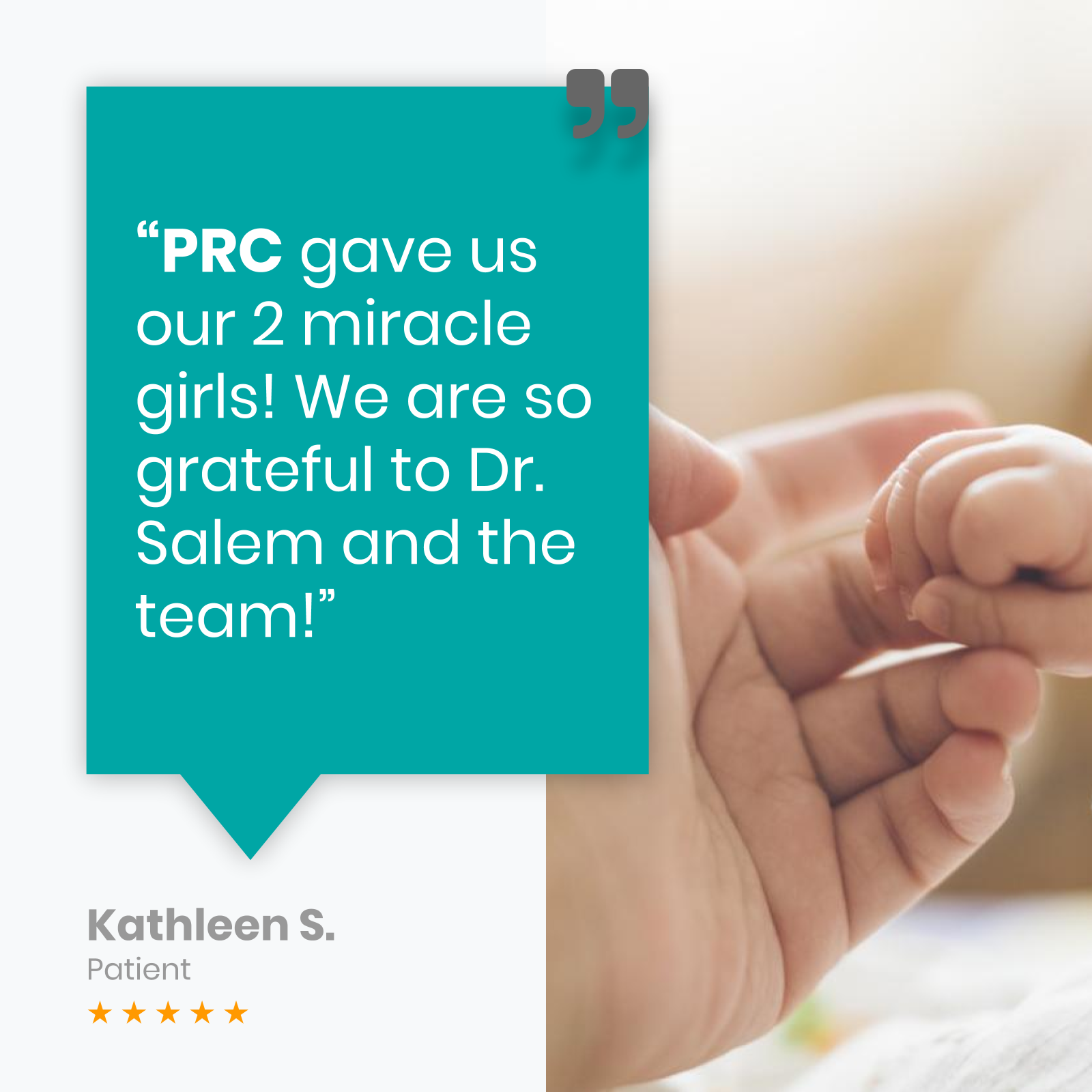Are you and your partner struggling to conceive? Are you feeling overwhelmed by complicated medical terms like oligoasthenoteratozoospermia? We’re here to help.
Understanding this common cause of male infertility can open doors to effective treatment options. The fertility specialists at Pacific Reproductive Center are ready to support you in overcoming male-factor infertility with specialized treatments.
What Is Oligoasthenoteratozoospermia (OAT)?
Oligoasthenoteratozoospermia (OAT) is a common condition that affects male fertility. It is characterized by abnormalities in sperm count, motility, and morphology (shape).
This highly specialized medical term is a combination of three unique conditions:
· Oligozoospermia—lower than typical sperm count.
A typical sperm count is more than 15 million sperm per 1 milliliter of semen.
· Asthenozoospermia—sperms have decreased or absent motility.
Sperm motility is important because it allows sperm to reach and penetrate the egg.
· Teratozoospermia—a high number of abnormally shaped sperm.
Proper morphology is important because sperm must be a particular shape to penetrate the outer layers of the egg successfully.
What Is Severe Oligoasthenoteratozoospermia?
Men are diagnosed with severe OAT when all three conditions are present in severe form, fertility is significantly reduced, and natural conception is unlikely.
IVF pregnancy rate
The pregnancy rate for in vitro fertilization (IVF) in cases of severe oligoasthenoteratozoospermia can be lower than average (30%) but is significantly improved with the use of intracytoplasmic sperm injection (ICSI).
ICSI is a medical procedure in which a single sperm is injected directly into an egg during IVF to induce fertilization and pregnancy. Following ICSI, the fertilized egg (embryo) grows in a laboratory for one to five days before transferring it to the woman’s uterus.
What Causes OAT?
Oligoasthenoteratozoospermia causes include:
- Genetics
This may include genetic abnormalities on the Y chromosome, DNA damage in sperm cells, or Klinefelter syndrome (having an extra X chromosome). - Lifestyle habits
The following lifestyle habits can affect sperm quality:- Alcohol and drug consumption.
- Tobacco use.
- Excess or insufficient weight.
- Prolonged exposure to heat in the testicles.
- Exposure to harmful substances
Environmental factors may contribute to male infertility, including long-term exposure to chemicals, heavy metals, X-rays, pollution, and radiofrequency electromagnetic radiation (RF-EMR) from mobile phones.
- Abnormalities in the testes
This may include swelling, injury, or cancer in the testicles, a history of radiology or chemotherapy, or a history of mumps, syphilis, or malaria. - Ejaculatory disorders
Warning signs may include inflammation of the prostate gland, impotence, erectile dysfunction (ED), blockage of the ejaculatory duct, and retrograde ejaculation (when sperm does not flow out of the body but returns to the bladder).
OAT Signs and Symptoms
Most men with OAT do not have any noticeable symptoms. It is often diagnosed when they seek medical advice following six or more months of trying to conceive.
How Is OAT Diagnosed?
Oligoasthenoteratozoospermia is diagnosed through a semen analysis, which evaluates sperm count, movement, and shape. Your doctor or fertility specialist will request a semen sample, which can be collected privately at home or at our clinic.
Fertility testing
Once the semen sample is collected, an andrologist or other fertility specialist evaluates it under a microscope to determine whether the sperm has the natural ability to fertilize an egg.
If abnormalities are detected, this analysis also helps guide the best fertility treatment options.
Treatment Options
In addition to making healthy lifestyle changes, your doctor may recommend one or more of the following, depending on the severity of your condition and any underlying causes:
- Medications
OAT caused by a hormonal imbalance may be treated with medications to improve sperm production and quality. - Assisted Reproductive Technologies (ART)
Combine IVF with ICSI to increase the chances of conception. - Surgical treatments
OAT that is caused by a blockage or swelling may require surgery to improve sperm production and quality.
Lifestyle changes
Your doctor may recommend some lifestyle changes to help improve sperm quality and overall fertility:
- Eat a healthy diet
Fill your plate with leafy green vegetables, whole grains, and lean meats. Avoid processed foods and trans fats. - Stop all tobacco and drug use
Avoid all tobacco products and recreational drugs to support overall fertility. - Limit alcohol consumption
Limit all alcohol consumption to support overall fertility and better health outcomes for the baby.
- Reduce stress
Manage stress through relaxation techniques, exercise, and sleep to improve overall reproductive health.
Severe Oligoasthenoteratozoospermia and Treatment in Southern California
Pacific Reproductive Center has helped thousands of couples fulfill their dream of building a family.
We offer a range of testing and diagnostic services for both men and women to assess overall fertility and guide your path toward parenthood with compassion. Contact us today to schedule your initial consultation.
Treatments
Pacific Reproductive Center has been successfully aiding conception for over two decades. We optimize the conditions of fertility treatment to give every potential parent the greatest chance of successful childbirth.
Resources
We ensure that every patient fully understands their medical condition and treatment options available to them. We understand each patient is unique so we help guide you through the best option to support your own fertility journey.
Looking for the Best Fertility Clinic in Southern California?
Pacific Reproductive Center has four convenient locations throughout Southern California, making it easy for patients to receive quality care close to home. Each IVF fertility center has an on-site lab, next-generation services, and state-of-the-art equipment.
Whether in Glendale, Torrance, Irvine, or Corona, our world-class fertility doctors can help you build the family you’ve always wanted.
3720 Lomita Blvd, Suite 200 Torrance, CA 90505
116 E. Broadway, Suite 300 Glendale, CA 91205
10 Post Irvine, CA 92618
381 Corporate Terrace Corona, CA 92879




